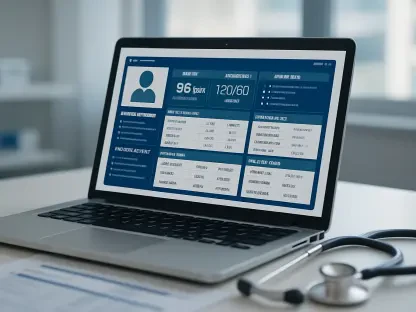In a groundbreaking initiative, Washington state has launched a program that allows pharmacists to prescribe abortion medications through telehealth. This effort, led by Uplift International, aims to address the barriers many individuals face in accessing abortion services. By leveraging telehealth, the program seeks to make abortion care more accessible, especially in underserved areas.
The Pharmacist Abortion Access Project
Collaboration and Training
The Pharmacist Abortion Access Project is a collaboration between Uplift International and Honeybee Health, an online pharmacy. This innovative partnership trains pharmacists to prescribe mifepristone and misoprostol, which are FDA-approved medications for abortion, for pregnancies up to ten weeks. The training protocol was meticulously developed in cooperation with Dr. Sarah Prager, a professor of obstetrics and gynecology at the University of Washington, ensuring that pharmacists are fully prepared to provide care safely and effectively. Pharmacists engage in continuous communication with their patients, addressing any concerns and scheduling follow-ups at one week and again at four to five weeks post-prescription.
This approach to training and prescribing through telehealth could not have come at a more critical time. With growing restrictions on abortion services in various regions, this program offers a robust model to combat those barriers. The pharmacists involved receive comprehensive instruction on managing the medications and offering emotional and medical support to their patients, mirroring the care typically found in a clinical setting. This model creates a seamless and reassuring experience for those seeking these services, contributing significantly to the broader conversation on reproductive healthcare access.
Pilot Phase and Results
The pilot phase of the Pharmacist Abortion Access Project, which ran from October 31 to November 26, 2024, resulted in an impressive 43 successful prescriptions. Patients who participated were required to be over the age of 18 and have a Washington address to receive the shipment of medications; however, proof of residency was not mandated. This was made possible due to Washington’s state shield laws that provide protections to medical providers offering abortion services, even to those from states with restrictive laws.
The successful outcomes of the pilot phase underscore the program’s potential to alleviate access issues faced by those in need of abortion care. Individuals participating in the pilot provided valuable feedback, highlighting the program’s efficiency and the convenience of obtaining medication through telehealth. These results encourage further expansion and demonstrate the effectiveness of utilizing pharmacists and telehealth in reproductive healthcare, setting the stage for broader acceptance and implementation.
Addressing Barriers to Abortion Access
Geographical and Logistical Challenges
Despite the broad legality of abortion in Washington state up to the point of fetal viability, typically between 24 and 26 weeks, many individuals still face geographical, financial, and logistical barriers. Telehealth offers a valuable solution in this context by expanding access significantly, particularly in underserved and rural areas. The program aims to mitigate these challenges by providing a convenient and discreet option for those seeking abortion care, reducing the physical and emotional strain often associated with visiting an abortion clinic.
The integration of telehealth into abortion services also helps those who might otherwise face difficulties accessing necessary care, such as individuals with limited transportation options or those living in areas with no nearby clinics. By utilizing telehealth, patients can receive timely medical assistance and get the care they need without the added burden of extensive travel or additional costs. This not only enhances the quality of care but also aligns with modern healthcare delivery models emphasizing accessibility and convenience.
Legislative and Social Challenges
The development of this project comes amidst growing legislative and social challenges to abortion access in the United States. Over the past two years, anti-abortion groups have intensified efforts to pass state laws that limit or ban telemedicine for abortion pills, arguing that such methods are unsafe. However, extensive research consistently shows that telehealth prescriptions for abortion are as safe as in-person visits, with minimal risk of serious complications and low necessity for additional follow-up care.
Despite the pushback from anti-abortion factions, the scientific evidence supports the safety and efficacy of telehealth for abortion services. This initiative highlights a critical clash between empirical data and political rhetoric, emphasizing the need for fact-based healthcare policies. The successful implementation and initial results of the Pharmacist Abortion Access Project challenge misconceptions and demonstrate the practical viability of telehealth in providing safe, effective abortion care, further bolstering the case for its expansion.
Future Aspirations and Broader Implications
Expansion Plans
Uplift International has ambitious plans to expand the program throughout Washington state and eventually transition to allowing pharmacists to prescribe medication abortions from physical pharmacies. This goal aims to standardize the practice across different states, providing a model for expanding abortion access even as political landscapes continue to shift. Rivin, the president and CEO of the nonprofit, expressed hope that this model will inspire similar programs in other states, offering a scalable and replicable solution to enhance reproductive healthcare.
The vision for the future involves creating a robust network of trained pharmacists who can provide medication abortions. As telehealth continues to gain traction, integrating such services into physical pharmacies could further normalize and standardize access to abortion care. This approach acknowledges the evolving nature of healthcare and seeks to establish pharmacists as key players in reproductive health, providing an optimistic roadmap for broader acceptance and systemic integration nationwide.
Regional Disparities
One challenge highlighted within the project is the stark contrast in abortion policies between neighboring states. For instance, Idaho, which shares progressive pharmacy laws with Washington, enforces some of the strictest anti-abortion regulations. These include a near-total ban on abortion and measures that criminalize efforts to seek an abortion outside the state for minors. This disparity underscores the complex landscape of abortion access and the pressing need for innovative solutions like the Pharmacist Abortion Access Project to navigate and mitigate such inconsistencies.
The variation in state policies presents significant hurdles to standardized care and highlights the necessity of adaptable models that can operate within different legal frameworks. Addressing these disparities involves both legislative efforts and grassroots initiatives to ensure that no individual is left without access to necessary reproductive healthcare. The Washington program’s success can serve as a compelling argument for other states to reconsider restrictive policies and embrace more progressive, evidence-based approaches.
The Role of Pharmacists in Reproductive Healthcare
Mainstreaming Pharmacist Involvement
Pharmacist involvement in prescribing abortion medication represents a novel approach aimed at mainstreaming and normalizing their role in reproductive healthcare. During an annual meeting with pharmacists from several states, including Idaho, Montana, Oregon, Washington, and Alaska, the project was presented. The reception was mixed, reflecting the diverse legislative environments concerning abortion access and the varying levels of comfort among pharmacists in taking on this role. Nonetheless, the project has sparked important conversations about the evolving responsibilities of pharmacists in healthcare.
As pharmacists begin to take a more active role in reproductive health services, ongoing education and support will be crucial. The mixed reception underscores the need for ongoing dialogue and training to ensure that pharmacists are prepared to meet these new challenges. By equipping pharmacists with the necessary tools and knowledge, the profession can expand its scope of practice and contribute significantly to improving access to abortion services.
Privacy and Convenience of Telehealth
Washington state has introduced a transformative initiative allowing pharmacists to prescribe abortion medications through telehealth, spearheaded by Uplift International. This pioneering effort aims to address and reduce the significant barriers many face when trying to access abortion services. Traditional routes to obtaining these services often involve navigating complex logistics, potential stigma, and time-consuming travel, particularly for those in rural or underserved communities. By leveraging the convenience of telehealth, the program seeks to make abortion care more widely accessible and efficient.
Telehealth allows patients to consult with healthcare providers remotely, eliminating the need for in-person visits. This method is especially beneficial in Washington state, where some communities may lack nearby abortion clinics. The new program not only supports women’s health but also sets a precedent for innovative healthcare solutions nationwide. As health access remains a contentious issue, Washington’s initiative represents a significant step toward ensuring reproductive rights are more broadly and equally available to all individuals in need of such services.









